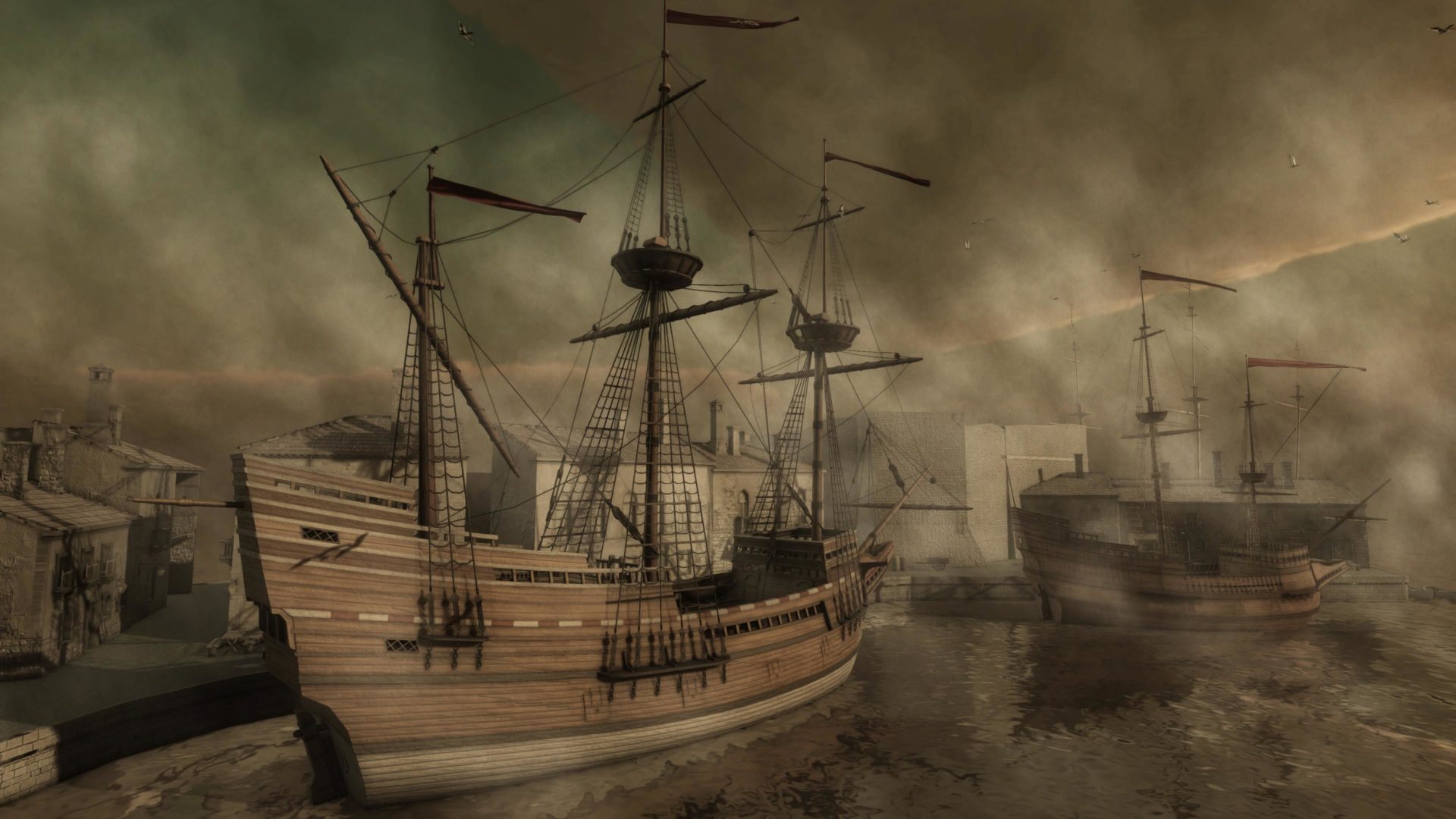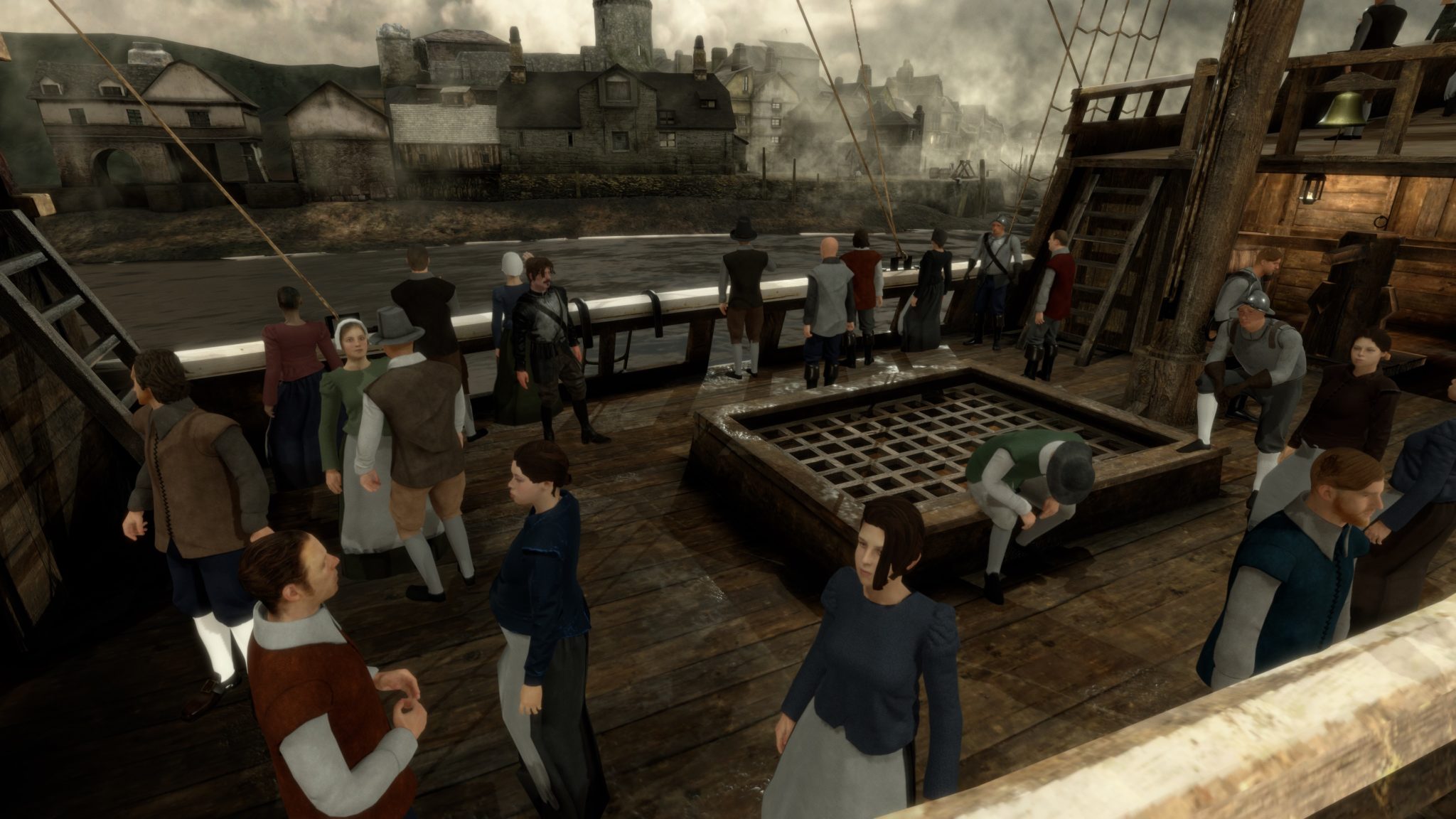
In Augmented Reality and Virtual Reality News
September 16, 2020 – Experts from the University of Birmingham have developed a virtual reality (VR) reconstruction of the Mayflower, one of the earliest pilgrim vessels and a cultural icon in the history of the United States, that will mark the 400th anniversary of the Pilgrim Fathers setting sail for America.
The Virtual Mayflower project recreates the Barbican Harbour area in Plymouth in the 1620s – allowing VR users to board a small boat at the original site of the Mayflower Steps before taking a short journey out to the ship and experience passengers and crew preparing to set sail.
The project, which was led by Professor Bob Stone, Director of the Human Interface Technologies (HIT) Team at the University of Birmingham, involved VR experts from the University, and was six years in the making. It uses computer-based interactive technologies, such as virtual and augmented reality (AR) to recreate history.
Professor Stone commented: “Virtual Mayflower is a magnificent way to commemorate a key point in history that shaped the development of the United States – an immersive experience that transports the viewer back to Plymouth in 1620.” He added, “As well as being a great demonstration of the power of VR and AR technology, this has been a collaborative and educational exercise involving members of the public, local historians, schoolchildren, artists and actors – all contributing to the development of highly detailed and authentic virtual models and scenes.”
Professor Stone and the HIT worked with a range of partner organisations on the project, including Royal Leamington Spa College, responsible for developing the virtual characters, including the Pilgrims, Barbican inhabitants, plus the passengers and crew (including an avatar of senior Pilgrim Edward Winslow). Also involved was Bluestone 360, a Plymouth, UK-based agency that will be hosting the simulation online. Specialist digital artists and VR specialists Robert Guest and Chris Harvey also worked on the project to help coordinate the development of the 3D assets.

The project builds on the HIT team’s extensive maritime heritage work since the early 2000s, including the creation of a VR/AR visualisation of the Anne – a 70-gun ship of the line, launched in 1678.
Professor stone continued: “Virtual Mayflower presented more of a challenge than the Anne, as we wanted the project to be both collaborative and educational” adding, “We also developed an international partnership, involving groups and talents in the US such as Plimoth Plantation and schools in Plymouth, Massachusetts to deliver a truly ‘hands across the Atlantic’ cultural legacy.”
The team has also been developing VR and complex navigational animation sequences for the Plymouth-based company MSUBS as part of its Mayflower Autonomous Ship project, which involves a vessel that has been designed to reproduce the transatlantic crossing of the Pilgrims using state-of-the-art maritime sensing and AI technologies.
The project can be found live online at www.1620mayflower.co.uk and is being launched today to coincide with the anniversary of the Mayflower’s departure from Plymouth on 16 September, 1620.
Image credit: www.1620mayflower.co.uk / University of Birmingham
About the author
Sam is the Founder and Managing Editor of Auganix. With a background in research and report writing, he has been covering XR industry news for the past seven years.




